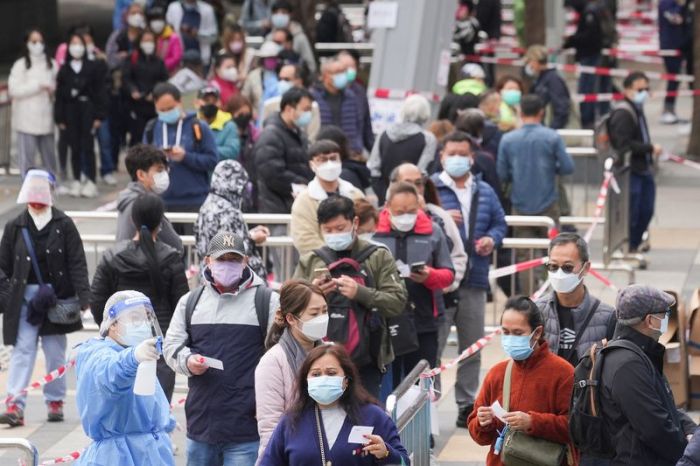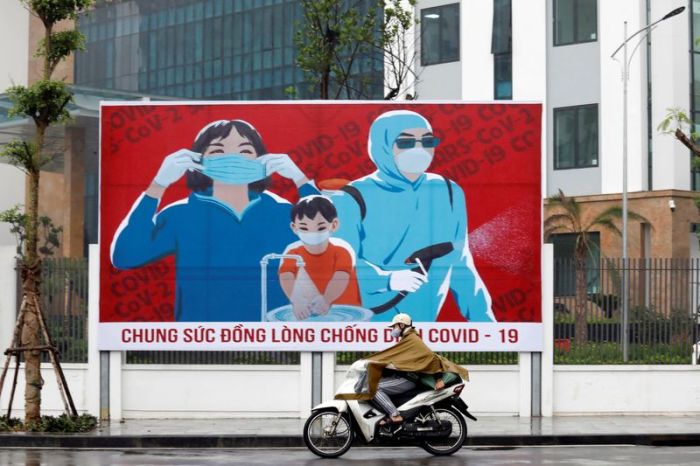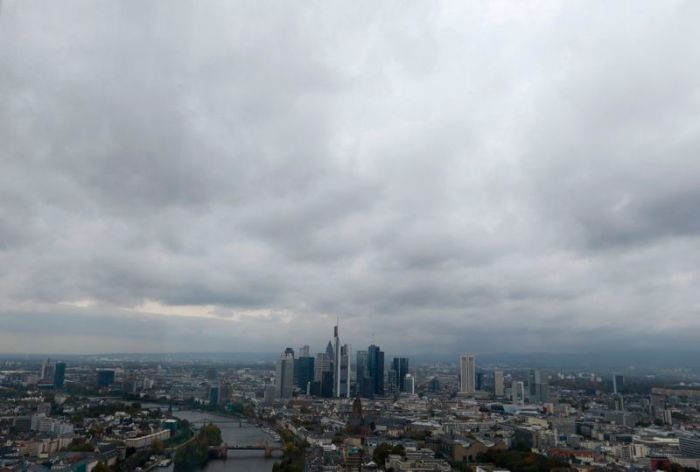By Jeff Mason and Idrees Ali
WASHINGTON (Reuters) -President Vladimir Putin’s decision to send troops he called peacemakers into breakaway regions of Ukraine did not constitute a further invasion that would trigger a broader sanctions package, a Biden administration official told Reuters on Monday, but the White House believes a full invasion could come at any time.
The United States will continue to pursue diplomacy with Russia until “tanks roll,” another official told reporters.
The Russian president’s recognition of the two breakaway regions as independent and his order to send in troops upped the ante with the West over Ukraine.
The White House announced after Putin’s announcement that it would prevent U.S. investment in those breakaway areas and the official who spoke to reporters said additional measures would be announced on Tuesday. But those measures were separate from a wider package of sanctions that Washington has promised to implement with its allies if Russia invades Ukraine.
The first administration official told Reuters sending Russian troops into the separatist regions was not a departure from what Russia had done already, which was why it did not trigger the broader sanctions.
“This isn’t a further invasion since it’s territory that they’ve already occupied,” that official said.
The official speaking to reporters on a conference call said sending Russian troops into the Donbas region in eastern Ukraine was not new.
“Russian troops moving into Donbas would not itself be a new step. Russia has had forces in the Donbas region for the past eight years… They are currently now making decisions to do this in a more overt and … open way,” he said.
The United States will continue to pursue diplomatic talks until or unless an invasion occurs, he said. “Russia continues to escalate this crisis that it created in the first place. We’ll continue to pursue diplomacy until the tanks roll, but we are under no illusions about what is likely to come next.”
Putin told Russia’s defense ministry to deploy troops into the two regions to “keep the peace” in a decree issued shortly after he announced recognition for Russia-backed separatists there.
President Joe Biden condemned Putin’s decision to recognize the regions.
Biden sought in January to clarify what the United States would consider an invasion. “If any, any assembled Russian units move across the Ukrainian border, that is an invasion,” he said.
Biden issued an executive order on Monday that White House spokesperson Jen Psaki said would “prohibit new investment, trade, and financing by U.S. persons to, from, or in the so-called DNR and LNR regions of Ukraine.”
The order will “also provide authority to impose sanctions on any person determined to operate in those areas of Ukraine,” Psaki said.
“To be clear: these measures are separate from and would be in addition to the swift and severe economic measures we have been preparing in coordination with Allies and partners should Russia further invade Ukraine,” she said.
Administration officials cast doubt on whether Biden, who agreed in principle to meet with Putin if Russia did not invade Ukraine, would carry through with that given Moscow’s actions.
(Reporting by Jeff Mason and Idrees Ali; Editing by Howard Goller)
























